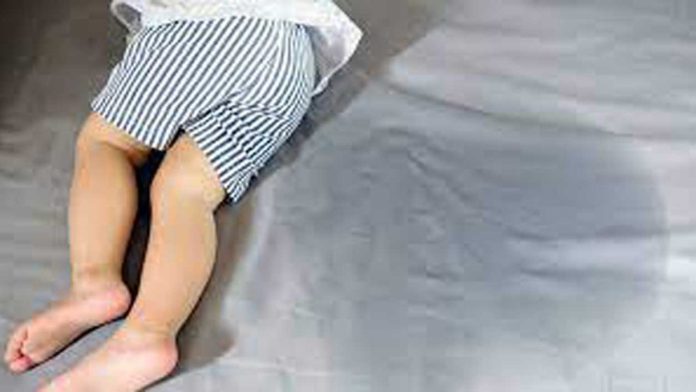Experts say it is common that in a class comprising 30 children age 6, between four and five of them will still be wetting the bed. They note, however, that by age 14, only 1% of children are still wetting the bed.
But what causes bedwetting, and how can kids get through it? Here’s what parents need to know.
Bedwetting, also known as nocturnal enuresis, is the accidental or involuntary release of urine while a kid is sleeping. It can happen even after toilet training, and gradually stops on its own, typically between the ages of 4 and 6, according to the Cleveland Clinic.
Just because a kid wets the bed once in a while doesn’t mean they have a bedwetting issue, though. “This has to happen twice a week for three months to be considered a disorder. So, occasional accidents or bedwetting episodes are not considered to be diagnostic,” physicians say. “The diagnosis of enuresis is not made until the age of 5, as bedwetting prior to that is considered normal, explained by the physiological and psychological development.”
Most commonly, bedwetting is caused by a lack of bladder maturity and control, scientists says. But there can be other issues at play
Essentially, a pediatrician will want to know if a child was not wetting the bed and then started to, or has always done so (and was never ‘nighttime potty-trained’).
Causes of bedwetting
Parents should assume bedwetting is completely unintentional unless they have a good reason to think otherwise, like a child telling them they are doing it on purpose.
Most commonly, bedwetting is caused by a lack of bladder maturity and control, scientists says. But there can be other issues at play. “Other common causes include genetic factors, increased nighttime urine production (nocturnal polyuria), children that are heavy deep sleepers, individuals with a small bladder capacity [and] children with overactive bladder and constipation,” paediatric urologists explain.
Children with ADHD also more commonly experience bedwetting, as do those with sleep apnea, constipation, diabetes, bladder infections, and other conditions, experts at online platform JustAnswer note.
Clinical psychologists also say that stress and trauma may contribute to a “minority” of nighttime bedwetting cases. “Children can go through a period of bedwetting when they have undergone a big life change, such as the arrival of a sibling or starting a new school, stressful events like a parental separation, or even exposure to a trauma, such as witnessing violence,” the psychologists say.
When should parents worry?
Anytime a child is doing something beyond what seems to be a typical timeline, parents naturally worry — and bedwetting is no different. Monitoring kids and their bathroom habits and other potential symptoms can help parents better understand if an underlying condition is at play.
Experts say some children have lower urinary tract issues during the day that can lead to bedwetting, including:
- Not completely emptying their bladders
- Dribbling urine
- Holding urine
- High urgency when they have to pee
- Daytime incontinence
- Urinary tract Infections
Children can go through a period of bedwetting when they have undergone a big life change, such as the arrival of a sibling or starting a new school, stressful events like a parental separation
If a kid has these symptoms, parents should alert their pediatrician, who might get a pediatric urologist involved too. In addition to those lower urinary tract symptoms, parents should bring bedwetting up with their doctor if they also notice:
- Weight loss
- History of protein in urine
- Fatigue
- Persistent nausea or vomiting
- Excessive thirst or getting up in the night to get drinks
- Enlarged tonsils
- Sleep apnea symptoms like snoring or stopping breathing during sleep
- History of spinal abnormalities
Each of these can point to another condition that needs treatment, from sleep apnea to kidney disease. And given the connection between bedwetting and ADHD, parents can also look out for symptoms such as an excessive fidgeting or an inability to focus.
The takeaway
While bedwetting can be exasperating, parents have an opportunity to teach their child about navigating frustrating events, being an advocate if there’s a medical issue and being involved in solution-seeking treatments with the help of a pediatrician. It’s key to not shame kids in any way, and to treat the problem with a positive attitude and a bit of patience.


